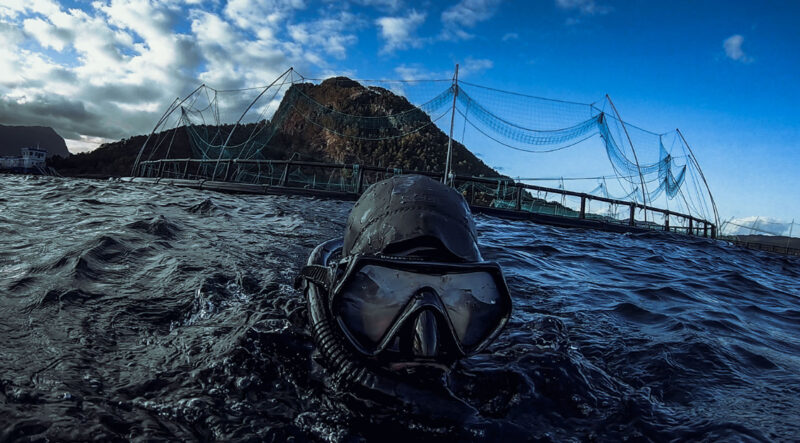Documentaries vs ‘Shockumentaries’ in the world of aquaculture
Misleading claims, erroneous statistics and out-of-context interviews dominate ‘Shockumentaries’ that pedal falsehoods about aquaculture, especially salmon farming.
By Fabian Dawson
SeaWestNews
Documentary filmmakers are creative artists for whom ethical behaviour is at the core of their projects.
Their primary relationship with viewers revolves around a central obligation to deliver accurate, balanced and honestly told stories.
‘Shockumentary’ filmmakers, on the other hand, produce pumped-up entertainment with highly selective narratives to showcase conflict that has no ethical, knowledge-gain or redemptive values.
They dismiss balance in storytelling in favour of a “creative treatment of facts, actuality and reality” that aligns with the propaganda and objectives of their funders.
In the world of aquaculture, especially salmon farming, ‘shockumentaries’ rule.
“Over the decades, I’ve noticed an increase in articles and documentary films that are unwilling to explore a balance of perspectives on behalf of their audiences,” said Ian Roberts, Mowi’s Director of Communications for Scotland, Ireland and Canada.
“Specific to salmon aquaculture, it seems that as science and facts prove the sustainability of aquaculture, anti-salmon farming activists have become more and more desperate to control their narrative by blocking dialogue,” he said.
“Control of the narrative now ranges from blocking comments and commentators on anti-aquaculture social media, to producing high-budget films that deny salmon farmers a fair right of reply.”
The latest example of such a ‘shockumentary’ is called “Eating Our Way To Extinction” narrated by actor Kate Winslet and backed by several vegan and vegetarian organizations using climate change as a convenient cover to get people to stop eating fish and meat.
According to Tavish Scott, CEO of the Scottish Salmon Producers Organisation, the filmmakers were invited to visit a sea farm to see for themselves “how we raise salmon here in Scotland and how we tackle the challenges that the natural marine environment can present.”
“We offered access to our fish health professionals and licensed vets who, along with farmers and animal welfare groups, help care for the salmon daily. A production company interested in a balanced film would have enjoyed reflecting our farmers’ passion and commitment,” wrote Scott in a published commentary.
“The response to our complete willingness to be open and transparent about what we do? The filmmakers refused to visit or to even give us a fair right of reply.”
Another such ‘shockumentary’ is Netflix’s Seaspiracy which has been globally criticized for a lack of voices from the aquaculture sector and its sensationalist and subjective approach to the health of the oceans.
“The director of the film “Seaspiracy” did not provide his common name nor his intent when requesting access to salmon farms and then stated that salmon farmers’ “refused to speak to him,” said Roberts.
NGOs and experts quoted in the film say it contains ‘misleading’ claims, erroneous statistics and out-of-context interviews, reported The Guardian.
“Seaspiracy fails to provide a critical lens to the problems it unveils. Instead, the film pedals falsehoods to encourage outrage,” said Forbes Magazine.
Netflix also forced Seaspiracy to retract a central false claim by the filmmakers that it takes 5-20kg of forage fish to produce 1kg of farmed salmon.
Clothing company Patagonia and its dislike for salmon aquaculture in general has produced three documentaries condemning fish farming.
The latest was called Artifishal, which falsely claimed that hatcheries are the same as open water Atlantic salmon farms, when they’re not.
“The film is one-sided and clouded by anti-salmon farming prejudice as well as Patagonia’s corporate marketing goals,” said Susan Farquharson, Executive Director of the Atlantic Canada Fish Farmers Association.
“It doesn’t matter if you grow fish for conservation or commercial purposes, every one of us is on Patagonia’s naughty list,” said Roberts.
In 2017 CTV News produced “Farm Troubles” ostensibly to investigate the battle over farmed Atlantic salmon on the B.C. coast.
Roberts said the production crew spent three days talking to anti-salmon farming activists, without contacting a salmon farmer.
“When we contacted them, they agreed to speak with a salmon farmer and Indigenous People’s directly involved in salmon aquaculture. Disappointingly the CTV journalist admitted that the interviews were ‘courtesy’ only, and he had no intention of including much of this perspective. Of the 24 minute program, three minutes was provided to those involved in salmon farming,” said Roberts.
A key part of the CTV show had Department of Fisheries and Oceans scientist Kristi Miller, well known for her anti-ocean aquaculture stand, accusing a colleague of potential conflict of interest because he had worked with a veterinarian from a fish-farm company on a scientific report.
The BC government launched an inquiry into this allegation, costing taxpayers $100,000, only to find out the claim was false and that was no evidence of “dubious data or conflict of interest,” as claimed by Miller in the CTV film.
“While presenting a singular perspective in films may be welcomed by a small minority that don’t want their beliefs questioned, the larger audience will feel cheated out of forming their own opinion based on a range of information and perspectives,” said Roberts.
“I would expect that critics of aquaculture who wish to incite positive change would have the courage to engage with those very real people who are working hard to grow healthy food, sustainably. This courage seems to be lacking today,” he said.
(Screenshot from the film “Eating Our Way To Extinction”)

